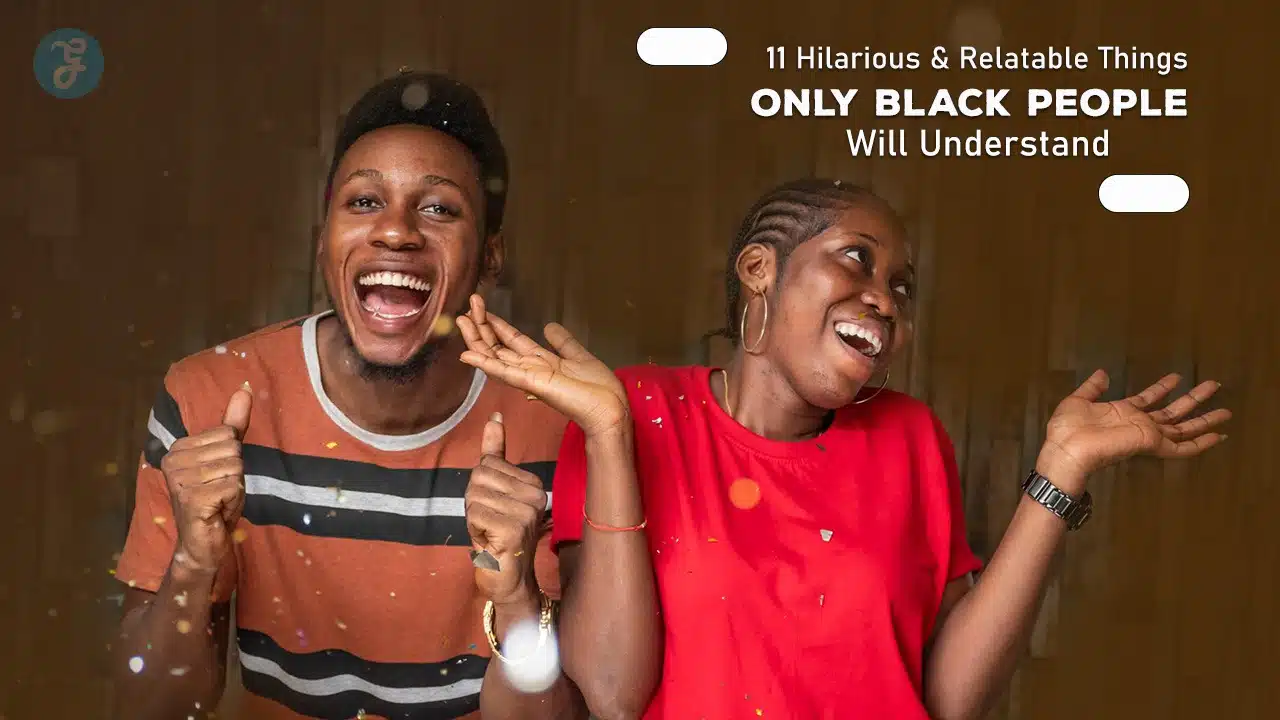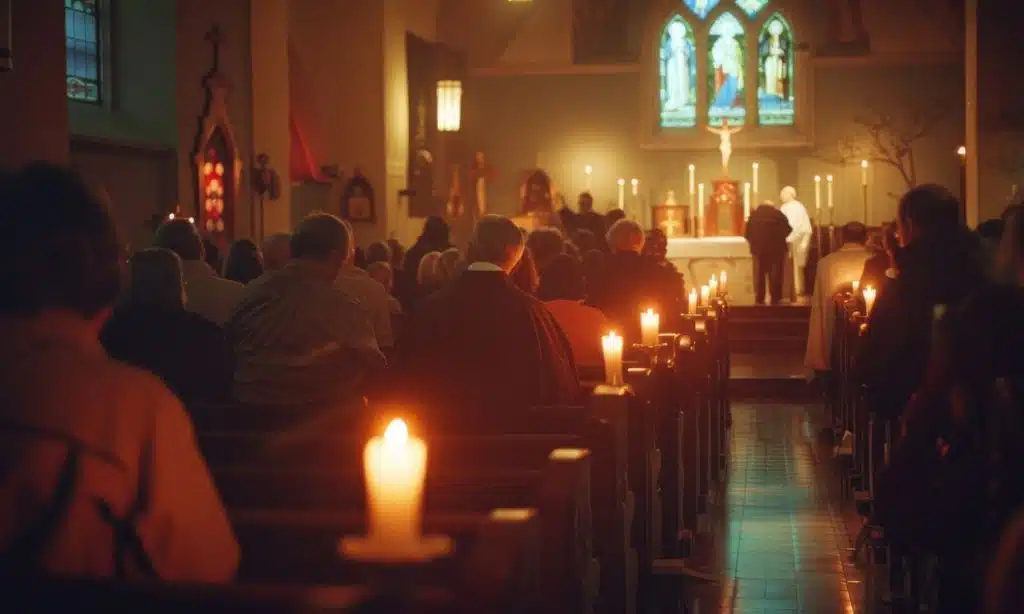Growing up in a Black household brings with it a set of unique experiences, habits, and cultural traditions that many can relate to on a deeply personal level. These shared experiences transcend regional differences, often creating a sense of familiarity and connection within the Black community. Whether it’s the unspoken rules of home life, cultural superstitions, or certain forms of communication, there are certain traits that bind us together, and many have been passed down from generation to generation.
We’re not just talking about the well-known aspects of Black culture, like music, fashion, or food. These are the day-to-day moments that, although small, carry significant weight in shaping the Black family experience. Social media has given us a space to laugh at these common quirks, bonding over experiences that we once thought were unique to our own homes, but have turned out to be universal across the African American experience.
From the relatable anxiety of forgetting to take the chicken out of the freezer to the understanding that certain things just won’t fly at a family function, these habits and behaviors are what make growing up in a Black household both challenging and fun. Let’s dive into 11 examples of habits you’ll only understand if you’ve grown up in a Black household:
1. The Chirping Smoke Detector That Never Gets Fixed
If you’ve ever found yourself sitting in a quiet room when a sudden chirp from the smoke detector pierces the silence, you’ve likely had the same reaction as many of us: you ignore it. What starts as a small beep signaling a dying battery often becomes background noise. For many Black families, that chirp can last for days, weeks, or even months. Somehow, we adjust, making it part of the household soundscape until someone finally gets around to changing the battery.
This might sound ridiculous to some, but it’s an oddly common experience. We’ve become so accustomed to this little disruption that we almost forget it’s there—until company comes over and we have to explain why it hasn’t been fixed yet. It’s one of those quirks that Black families just… live with. Of course, the sensible thing is to change the battery immediately, but there’s something about that little chirp that seems less urgent as time passes. You’re probably chuckling because you know it’s true.
2. The Rule About Never Putting Purses on the Floor
This is one of those rules that’s deeply ingrained in Black households—especially when it comes to the elders. You might not know exactly where the rule came from, but if you grew up Black, you know it’s bad luck to place your purse on the floor. The idea, passed down from generation to generation, is that if you put your purse on the floor, you’ll lose money or experience financial misfortune. It doesn’t matter if it’s a designer handbag or just a small wallet; once that purse hits the floor, it’s game over for your finances.
In many Black families, it’s not just a matter of superstition; it’s also considered poor etiquette. Grandmothers and aunts will be quick to remind you to keep your purse off the ground, insisting that placing it on the floor invites bad energy and broken bank accounts. Whether you believe in the superstition or not, it’s one of those rules that we follow without question. After all, why risk it? Better safe than sorry!
3. The Stove Light Means the Kitchen is Officially Closed
There’s an unspoken rule in many Black households when it comes to the kitchen: once the stove light is on, the kitchen is closed for the night. It’s not just a signal; it’s a boundary. After a long day, especially after cleaning up and doing dishes, that little light above the stove acts as a sign to all family members—don’t even think about making another mess.
In many homes, this rule is reinforced by the lingering smell of cleaning products like bleach, a clear indication that mom or grandma has scrubbed the kitchen down for the night. The stove light might be small, but its meaning is mighty. It says, “You’ve had your chance to cook, snack, or make whatever you need to, but now the kitchen is off-limits.” Of course, this rule isn’t always strictly enforced, but most people know better than to tempt fate by dirtying a dish after that light is on.
4. Laughing So Hard, You Start Running
There’s something special about laughter in Black culture. It’s not just about humor—it’s about expression. When Black people laugh, they laugh with their whole body. A simple chuckle can turn into a full-on, body-shaking experience. Whether it’s falling over on the couch, slapping your knee, or even sprinting across the room, laughter in Black households is a total body workout.
One of the most recognizable forms of laughter is the infamous “Windex bottle cackle,” named for its high-pitched, wheezy sound that resembles the spray of a Windex bottle. It’s contagious and once someone starts laughing that way, everyone else can’t help but join in. Laughter in Black households is often communal; it’s loud, joyful, and sometimes leaves you breathless. Don’t be surprised if you see someone literally running in place or darting across the room—they’re not scared, they’re just laughing!
5. Your Room Becomes the ‘Kids Zone’ at Family Functions
If you grew up Black, chances are you’ve been a victim of having your personal space turned into the designated kids’ room during family gatherings. When it’s time for the adults to have their “grown folks’ conversations,” the kids are swiftly ushered into one room—often your room. What starts as a peaceful gathering in the living room turns into a mini daycare in your bedroom, complete with cousins, cartoons, and toys everywhere.
This division between adults and kids is almost a rite of passage in Black families. While the grown-ups catch up over food and music, the kids are left to entertain themselves in another room. For the younger ones, it can feel like a sleepover or mini-party, but for the older kids, it’s often a mix of babysitting and keeping the peace. Either way, it’s a common experience that we’ve all been through at some point during those big family gatherings.
6. The Non-Apology From Black Parents
If you’ve ever been scolded or fussed at by a Black parent, you know not to expect an apology afterward. Instead of a direct “I’m sorry,” you’ll likely get a subtler form of reconciliation. After a particularly harsh lecture, you might find your parent standing in your doorway, offering food or casually asking if you’re hungry. That’s their way of smoothing things over without actually admitting they were wrong.
In Black households, verbal apologies aren’t always the go-to method for making amends. Parents might tell you to “fix your face” after an argument, or they’ll simply move on as if nothing happened. But when they call you for dinner or offer you something to eat, that’s their olive branch. It’s an understanding that no one will talk about, but both parties know what it means. You take what you can get.
7. Avoiding Potlucks Like the Plague
“You can’t eat from everybody’s kitchen” is a phrase every Black person has heard at some point in their life. This is one of the main reasons why potlucks are often met with suspicion in Black households. Whether it’s a work event or a neighborhood gathering, we’re very particular about who made the food and how clean their kitchen is. The horror stories of people’s pets walking on countertops or questionable hygiene habits are enough to make anyone wary of trying that mystery casserole at the office potluck.
Black folks are known for being picky eaters when it comes to outside food. We’ll bring our own dish, but when it comes to sampling something someone else made? Proceed with caution. If we do try something, we’re mentally bracing ourselves for the worst, especially if we don’t know the chef personally. Food safety is no joke, and for many, it’s better to avoid the potluck entirely than risk disappointment—or worse.
8. The Long Goodbye at Family Functions
One of the funniest quirks about Black family gatherings is the process of leaving. Saying goodbye at a Black function isn’t a quick affair. If someone says they’re leaving, add an extra 30 minutes to an hour before they actually make it out the door. There are hugs to give, conversations to finish, and food to take home. What starts as a simple “Goodnight, y’all” can easily turn into an entire saga of socializing.
The long goodbye is almost a tradition in itself. As you inch closer to the door, you’re bound to get caught up in one last conversation, or maybe you’ll remember that you forgot to say goodbye to someone else. It’s a process, but it’s also a reflection of the warmth and closeness of the family. Saying goodbye takes time because no one really wants to leave.
9. “Light Refreshments” After Church Are Anything But Light
After a Sunday service, it’s common for churches to offer “light refreshments.” But in a Black church, light refreshments can easily turn into a full-blown meal. Fried chicken, mac and cheese, greens, cornbread—the works. What was meant to be a light snack quickly becomes a feast, and no one’s complaining. After hours of worship, it’s the perfect way to satisfy your appetite and enjoy some good food with your church family.
Of course, these “light refreshments” often come with the side effect of the itis—the overwhelming desire to take a nap after a big meal. But in the Black church community, this post-service meal is a tradition. It’s a time to fellowship with others, share a meal, and maybe even grab a to-go plate for later. Just don’t expect to leave hungry!
10. “You’re Making Me Hot With That Jacket On!”
Only in a Black household will someone look at you wearing a hoodie and claim that you’re raising the temperature in the room. You could be perfectly comfortable, but for some reason, your extra layer is enough to send someone into a hot flash. It’s a funny quirk that only seems to happen in Black families, where the sight of someone bundled up in a sweater can make others feel like they’re overheating just by looking at you.
This odd phenomenon leads to frequent demands to “take that jacket off” for the sake of someone else’s comfort. Even if the thermostat hasn’t budged, your clothing choices apparently have the power to affect the entire room. It’s one of those small, humorous things that only people who grew up in a Black household can truly understand.
11. Adding an Extra “S” to Non-Plural Words
It’s not uncommon to hear Black folks casually adding an “S” to the end of certain store names or brands, even when it’s not necessary. For example, you might hear someone say they’re going to “Costco’s” instead of Costco, or “JCPenny’s” instead of JCPenney. It’s a small linguistic habit that seems to make the word roll off the tongue better.
This tendency to pluralize certain words isn’t just limited to stores. You might also hear people saying “Walmarts” or “Burger Kings,” even though we all know it’s technically incorrect. It’s one of those quirks that we’re aware of, but most of us are in no hurry to change. After all, why mess with a habit that’s been around for so long?





































